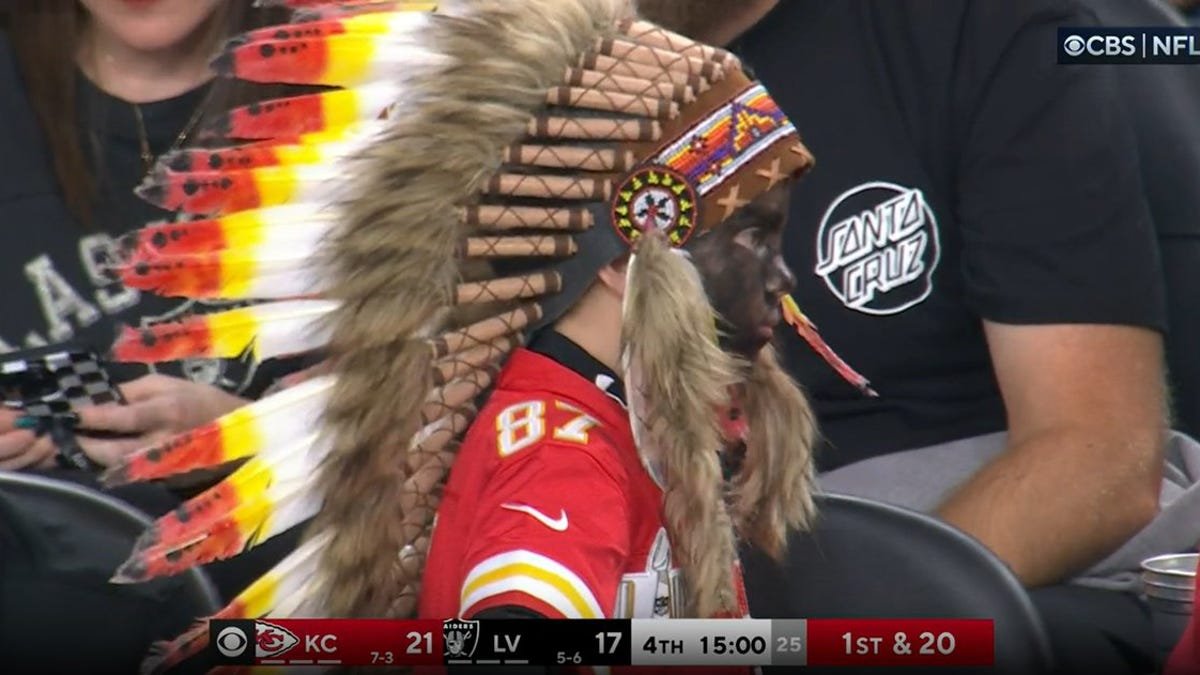On Sunday afternoon in Las Vegas, a Kansas City Chiefs fan managed to disrespect two groups of people at once: Black people and Native Americans. The image of a Chiefs fan wearing Blackface and a Native headdress during a road game raises numerous unanswered questions. Why did the camera person give this fan attention? Why did the producer allow that camera angle to be aired? Is the fan a young adult or a teenager? And most importantly, who taught that person that their attire was appropriate?
The responsibility for these actions ultimately falls back on the NFL. While it may not be the league’s responsibility to stop racism and hate from being taught in the home, they have played a role in perpetuating prejudice. If the NFL had taken a stronger stance against the “Chop” at Chiefs games and made more efforts to change the team’s name, incidents like this could have been prevented.
The fact that a franchise can still be called the “Chiefs” in a league that has eradicated the term “Redskins” is unacceptable. As Amanda Blackhorse, a Native American activist, stated, “There’s no pretty way to mascot people.” The NFL’s failure to address this issue demonstrates a lack of commitment to racial justice.
The league’s attempts to address social justice through initiatives like allowing players to wear decals on their helmets are often referred to as “social justice” rather than “racial justice.” This language serves to soften the issue and distract from the core problem. It is insulting and infuriating to see slogans like “End Racism” and “It Takes All Of Us” sketched in the end zones when the NFL has a racist past and is currently facing allegations of racism.
The idea that it takes all of humanity to end racism is not only asinine but also cruel. It is unfair to expect the oppressed to assist their oppressors in ending their own oppression. The NFL’s end zone slogans and initiatives do not absolve them of their responsibility and accountability for perpetuating racism.
The fact that the league is sensitive about their “message” is evident in their response to rumors about changing the end zone slogan. When Deadspin contacted the league about a rumor that “Play Football” would be the new motto, they received a prompt response denying it. The league is more concerned with maintaining their image than actually addressing the issue at hand.
As of now, the NFL has not released a statement addressing the incident in Las Vegas. The photo of the fan in Blackface and a Native headdress circulating on the internet is a terrible look for the league, but sadly, it is not surprising. Despite Commissioner Roger Goodell’s promises to confront systemic racism and bring about change, the league has made little progress. Three years after Goodell’s comments, it feels like nothing has changed, and incidents like this only reinforce that feeling.
In order for real change to occur, the NFL needs to take meaningful action. They must address the issues of racism within their own organization, as well as within society. Empty slogans and gestures are not enough. It is time for the league to step up and show a genuine commitment to racial justice.




